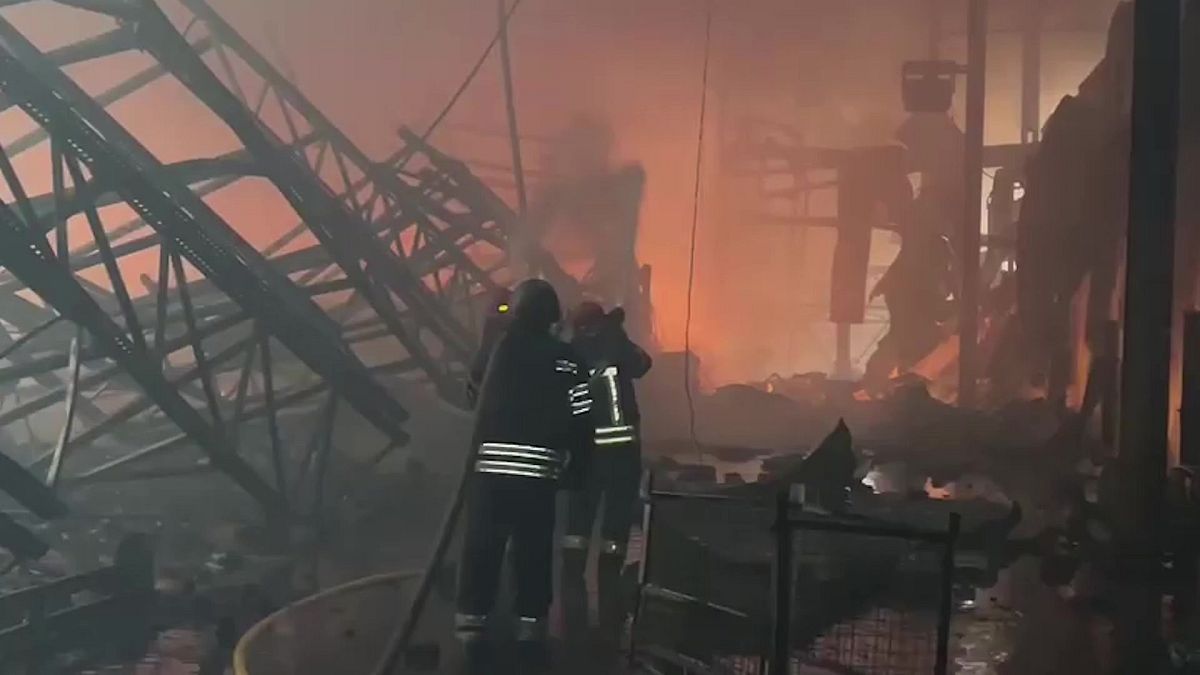As the war in Ukraine continues and the food supply is destroyed, 45 per cent of Ukrainians are now worried about being able to find food.
One of Europe’s largest food storage facilities has been destroyed in Ukraine.
Brovary, 20 kilometres northeast of the country's capital Kyiv, is home to multiple warehouses and has been targeted by Russian shelling. The Mayor of the city, Iho Saposhko, is convinced this attack was planned even before the war started.
“It wasn’t an accident. It was intentional. The entire food warehouse and 50,000 tonnes of food were destroyed,” says Saposhko.
"All food stores in Brovary were bombed on the same day. They deliberately destroyed food stocks destined for the whole of Ukraine.”
In the first days of the war, Russian forces managed to advance from Belarus to Brovary but Ukrainian troops halted their progress, helping to save Kyiv.
How is the war in Ukraine affecting global food supply?
Before the war, Ukraine grew produce to feed 400 million people around the world. Half of the grain used by the UN World Food Programme (WFP) was bought from the country.
Now, the WFP needs €530 million just to help assist the 3.1 million displaced people inside Ukraine.
According to the UN organisation 45 per cent of Ukrainians are now worried about finding enough to eat. One in five people are reportedly reducing the size and number of their daily meals. Many parents are choosing to skip meals altogether in order to keep their children fed.
Exports from Ukraine are being blocked too meaning many others around the world could soon struggle to find enough to eat.
Through a combination of food shortages and the rise in fuel costs, prices in supermarkets have hit an all time high. It means those in vulnerable economic positions may not be able to afford to buy food, even if it is available in the shops.
“The consequences of the conflict are radiating outwards,” said WFP Regional Director Corinne Fleischer.
“Higher prices mean more people around the world will fall into hunger. At the same time, we at WFP also have to pay more for the food we buy, so our operations to help those people also take a hit.
“We need the world to step up at this critical time.”
Watch the video above to see more.



